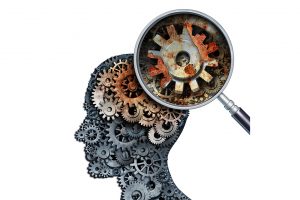It’s the stuff of our most paranoid nightmares – the feeling of persistent forgetfulness slowly leading into a deep, unsettling sense of confusion which eventually becomes so profound, that we lose our sense of self entirely. It’s a sensation which the young are, perhaps, most familiar with from horror movies – of things moving by themselves, of the world not quite being as you expected it to be, of having to question everything. But for as many as 1 in 9 of us [1], this will become our final reality. If we’re lucky enough to survive past 80, this prevalence increases to 1 in 6 – so perhaps its unsurprising that a recent study from Alzheimer’s Society found that dementia is the most feared health condition in the UK [3].
But what if there were a way to prevent this devastating disease from taking hold? Brain-training games have come under some scrutiny recently, after Luminosity, one of the market’s leading purveyors, was taken to court by the Federal Trade Commission over their claims that brain-training can help to “reduce the effects of dementia, enhance memory and boost brain function” [4]. This was found to be false advertising, with claims made by the company going “beyond the data” – so, if you’re looking to lower your risk of getting dementia, what can you do?
Well, there is one thing to consider – your vitamin B intake. B-vitamins have been implicated as protective risk factors against cognitive decline and Alzheimer’s, [5] and vitamin B-12 in particular can be credibly linked to mental decline [5]. In fact, vitamin B-12 deficiency causes cognitive problems of its own, and is associated with both Alzheimer’s and Parkinson’s Disease [6], as well as vascular dementia. Some cognitive issues are even reversible when treated with vitamin B12 (although only if B-12 deficiency is already pre-existing). While, clearly, more research is needed to uncover the full extent of the link between B-vitamins and cognitive decline, the existing evidence is compelling.
Of course, this doesn’t mean that dosing yourself up to the eyeballs with every B-supplement you can get your hands on is going to save your brain; but it does mean you’d be foolish not to ensure your levels are kept optimal. B-12 is found in meat, fish, cheese, eggs and some fortified cereals – so if you’re a vegetarian or a vegan, it’s particularly important to take supplements. Vitamin B-12 has also been shown to be particularly effective when taken in conjunction with omega-3 [7], so combining your supplements may offer you the greatest protective effect.
It’s important to understand the complex interplay between our diets and our mental health – you shouldn’t simply assume that taking a supplement will be enough to lower your risk of dementia. Exercise, moderating or eliminating your alcohol use, quitting smoking and keeping an eye on your blood pressure are all important too – but ensuring your vitamin B levels are on track is an easy way of eliminating an important risk factor. And who can say fairer than that?
The combination of vitamins B6 (pyridoxine) and B12 (cobalamin) with folic acid as used in the Oxford and Oslo Universities clinical trials is available in practical packaging through the Wellman Clinic on 020 7637 2018.
[2] https://www.alzheimers.org.uk/statistics
[3] https://www.alzheimers.org.uk/site/scripts/news_article.php?newsID=2606
[5] https://www.ncbi.nlm.nih.gov/pmc/articles/PMC3428233/
[6] https://www.ncbi.nlm.nih.gov/pubmed/22221769
[7] https://www.alzheimers.org.uk/site/scripts/news_article.php?newsID=2538




